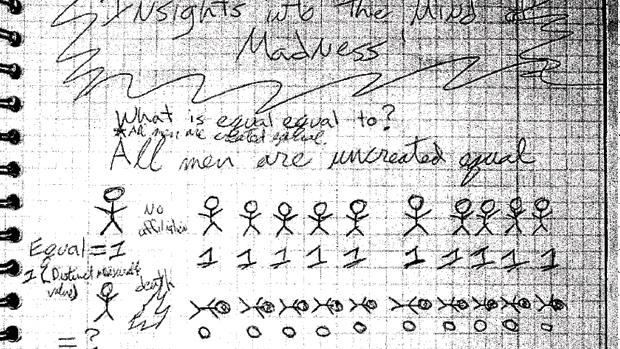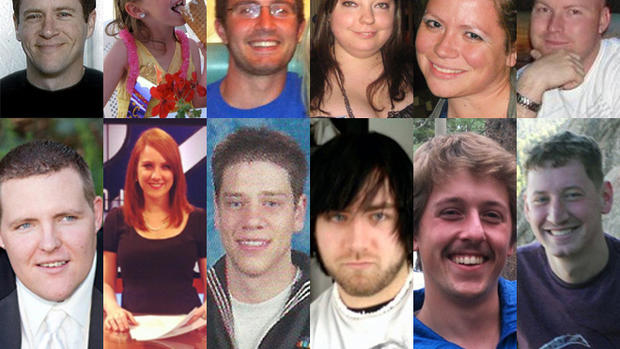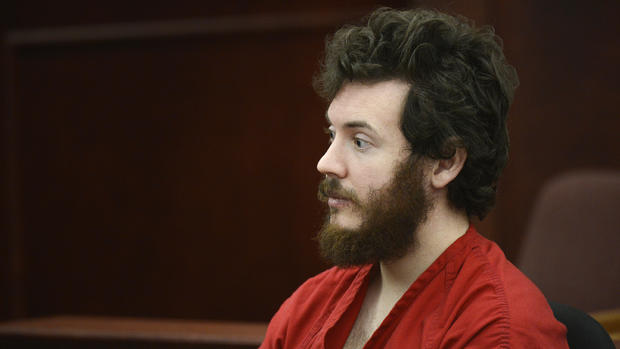Fate of Colorado theater gunman in jury's hands
CENTENNIAL, Colo. -- One after the other, their faces flashed on an overhead screen: the aspiring sports broadcaster, the caring dad, the smiling 6-year-old girl a prosecutor described as "forever our kindergartner."
Photos of the 12 people who died in the Colorado theater shooting were the last images jurors saw before they started deliberating Wednesday over whether the gunman, James Holmes, was legally insane when he opened fire on a crowded midnight movie premiere.
Within 30 minutes, the group of nine women and three men requested a whiteboard. Later, they asked Judge Carlos A. Samour Jr. for an index to the mounds of evidence left for them in the jury room. But Samour denied the request, saying the two sides wouldn't agree on how things should be labeled.
"I anticipated this because there are thousands of pieces of evidence, but unfortunately they have to do it the hard way, which is just sort of dig through," Samour told the attorneys.
Wednesday evening, the jury went home for the day without reaching a verdict, according to Rob McCallum, the public information officer for the court system. Deliberations will resume Thursday morning.
In closing arguments Tuesday, District Attorney George Brauchler kept the focus on the shooting's heavy toll on victims, weaving their stories into a larger narrative that tried to show Holmes was legally sane when he carried out the attack almost three years ago.
But defense attorney Daniel King presented Holmes, now 27, as a kind of victim himself, of schizophrenia so consuming he was unable to tell right from wrong when he slipped into the auditorium and started shooting, injuring another 70 before his gun jammed and he surrendered. King showed jurors images of Holmes looking dazed and sullen with fiery orange hair after the July 20, 2012, attack.
Defense attorneys are asking for a verdict of not guilty by reason of insanity, which would send Holmes to the state mental hospital for an indefinite commitment. Prosecutors say Holmes should be convicted of murder and executed.
Because of the conflicting testimony from mental health professionals, CBS News legal analyst Rikki Klieman told CBSN on Tuesday that the closing arguments were a "battle of experts."
Klieman also noted that Holmes' lawyers ended their case with "very powerful" video, showing Holmes throwing himself head-first into a wall in a bid to bolster the insanity defense.
Many of the victims and family members in the courtroom wept as Brauchler showed their photos. Josh Nowlan, who was shot in the leg and walks with a cane, covered his eyes with his hands and shook.
Brauchler told jurors the victims went to the suburban Denver theater that night to see a movie about a hero who fought for justice. Instead, a different person appeared near the screen.
"He came there with one thing in his heart and his mind, and that was mass murder," Brauchler said.
King urged the jurors to set aside the deeply emotional impact of the massacre.
"When he stepped into that theater, the evidence is clear that he could not control his thoughts, that he could not control his actions, and that he could not control his perceptions," King said.
Both sides are trying to help jurors make sense of thousands of pieces of evidence and more than 250 witnesses who testified in the 11-week trial. With that information, it will be up to the jury to decide whether prosecutors met their burden of proving Holmes was legally sane.
"We're praying the jury does the right thing, praying to God," said Rena Medek, whose daughter, Micayla Medek, died in the shooting. Rena Medek attended the trial daily with Micayla's grandmother, Marlene Knobbe.
Sandy Phillips' daughter, Jessica Ghawi, also was killed.
"Just because the trial is over, it's not over for us," Phillips said. "It's never going to be over for the 12 families who lost their loved ones in that theater."


